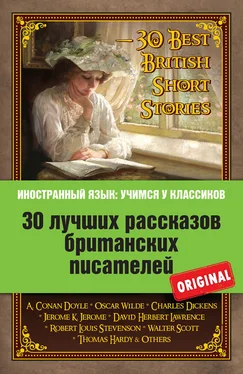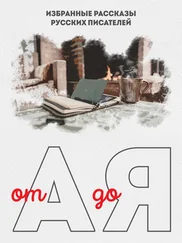In half a minute the light of the lanterns fell upon a hired fly, drawn by a steaming and jaded horse. It reached the hand-post, when a voice from the inside cried, ‘Stop here!’ The driver pulled rein. The carriage door was opened from within, and there leapt out a private soldier in the uniform of some line regiment. He looked around, and was apparently surprised to see the musicians standing there.
‘Have you buried a man here?’ he asked.
‘No. We bain’t Sidlinch folk, thank God; we be Newton choir. Though a man is just buried here, that’s true; and we’ve raised a carrel over the poor mortal’s natomy. What – do my eyes see before me young Luke Holway, that went wi’ his regiment to the East Indies, or do I see his spirit straight from the battlefield? Be you the son that wrote the letter–’
‘Don’t – don’t ask me. The funeral is over, then?’
‘There wer no funeral, in a Christen manner of speaking. But’s buried, sure enough. You must have met the men going back in the empty cart.’
‘Like a dog in a ditch, and all through me!’
He remained silent, looking at the grave, and they could not help pitying him. ‘My friends,’ he said, ‘I understand better now. You have, I suppose, in neighbourly charity, sung peace to his soul? I thank you, from my heart, for your kind pity. Yes; I am Sergeant Holway’s miserable son – I’m the son who has brought about his father’s death, as truly as if I had done it with my own hand!’
‘No, no. Don’t ye take on so, young man. He’d been naturally low for a good while, off and on, so we hear.’
‘We were out in the East when I wrote to him. Everything had seemed to go wrong with me. Just after my letter had gone we were ordered home. That’s how it is you see me here. As soon as we got into barracks at Casterbridge I heard o’ this . . . Damn me! I’ll dare to follow my father, and make away with myself, too. It is the only thing left to do!’
‘Don’t ye be rash, Luke Holway, I say again; but try to make amends by your future life. And maybe your father will smile a smile down from heaven upon ’ee for ’t.’
He shook his head. ‘I don’t know about that!’ he answered bitterly.
‘Try and be worthy of your father at his best. ’Tis not too late.’
‘D’ye think not? I fancy it is! . . . Well, I’ll turn it over. Thank you for your good counsel. I’ll live for one thing, at any rate. I’ll move father’s body to a decent Christian churchyard, if I do it with my own hands. I can’t save his life, but I can give him an honourable grave. He shan’t lie in this accursed place!’
‘Ay, as our pa’son says, ’tis a barbarous custom they keep up at Sidlinch, and ought to be done away wi’. The man a’ old soldier, too. You see, our pa’son is not like yours at Sidlinch.’
‘He says it is barbarous, does he? So it is!’ cried the soldier. ‘Now hearken, my friends.’ Then he proceeded to inquire if they would increase his indebtedness to them by undertaking the removal, privately, of the body of the suicide to the churchyard, not of Sidlinch, a parish he now hated, but of Chalk-Newton. He would give them all he possessed to do it.
Lot asked Ezra Cattstock what he thought of it.
Cattstock, the ’cello player, who was also the sexton, demurred, and advised the young soldier to sound the rector about it first. ‘Mid be he would object, and yet ’a mid’nt. The pa’son o’ Sidlinch is a hard man, I own ye, and ’a said if folk will kill theirselves in hot blood they must take the consequences. But ours don’t think like that at all, and might allow it.’
‘What’s his name?’
‘The honourable and reverent Mr. Oldham, brother to Lord Wessex. But you needn’t be afeard o’ en on that account. He’ll talk to ’ee like a common man, if so be you haven’t had enough drink to gie ’ee bad breath.’
‘O, the same as formerly. I’ll ask him. Thank you. And that duty done–’
‘What then?’
‘There’s war in Spain. I hear our next move is there. I’ll try to show myself to be what my father wished me. I don’t suppose I shall – but I’ll try in my feeble way. That much I swear – here over his body. So help me God.’
Luke smacked his palm against the white hand-post with such force that it shook. ‘Yes, there’s war in Spain; and another chance for me to be worthy of father.’
So the matter ended that night. That the private acted in one thing as he had vowed to do soon became apparent, for during the Christmas week the rector came into the churchyard when Cattstock was there, and asked him to find a spot that would be suitable for the purpose of such an interment, adding that he had slightly known the late sergeant, and was not aware of any law which forbade him to assent to the removal, the letter of the rule having been observed. But as he did not wish to seem moved by opposition to his neighbour at Sidlinch, he had stipulated that the act of charity should be carried out at night, and as privately as possible, and that the grave should be in an obscure part of the enclosure. ‘You had better see the young man about it at once,’ added the rector.
But before Ezra had done anything Luke came down to his house. His furlough had been cut short, owing to new developments of the war in the Peninsula, and being obliged to go back to his regiment immediately, he was compelled to leave the exhumation and reinterment to his friends. Everything was paid for, and he implored them all to see it carried out forthwith.
With this the soldier left. The next day Ezra, on thinking the matter over, again went across to the rectory, struck with sudden misgiving. He had remembered that the sergeant had been buried without a coffin, and he was not sure that a stake had not been driven through him. The business would be more troublesome than they had at first supposed.
‘Yes, indeed!’ murmured the rector. ‘I am afraid it is not feasible after all.’
The next event was the arrival of a headstone by carrier from the nearest town; to be left at Mr. Ezra Cattstock’s; all expenses paid. The sexton and the carrier deposited the stone in the former’s outhouse; and Ezra, left alone, put on his spectacles and read the brief and simple inscription: –
HERE LYETH THE BODY OF SAMUEL HOLWAY,
LATE SERGEANT IN HIS MAJESTY’S –D REGIMENT
OF FOOT, WHO DEPARTED THIS LIFE DECEMBER
THE 20TH, 180–. ERECTED BY L. H.
‘I AM NOT WORTHY TO BE CALLED THY SON.’
Ezra again called at the riverside rectory. ‘The stone is come, sir. But I’m afeard we can’t do it nohow.’
‘I should like to oblige him,’ said the gentlemanly old incumbent. ‘And I would forego all fees willingly. Still, if you and the others don’t think you can carry it out, I am in doubt what to say.’
‘Well, sir; I’ve made inquiry of a Sidlinch woman as to his burial, and what I thought seems true. They buried en wi’ a new six-foot hurdle-saul drough’s body, from the sheep-pen up in North Ewelease though they won’t own to it now. And the question is, is the moving worthwhile, considering the awkwardness?’
‘Have you heard anything more of the young man?’
Ezra had only heard that he had embarked that week for Spain with the rest of the regiment. ‘And if he’s as desperate as ’a seemed, we shall never see him here in England again.’
‘It is an awkward case,’ said the rector.
Ezra talked it over with the choir; one of whom suggested that the stone might be erected at the crossroads. This was regarded as impracticable. Another said that it might be set up in the churchyard without removing the body; but this was seen to be dishonest. So nothing was done.
The headstone remained in Ezra’s outhouse till, growing tired of seeing it there, he put it away among the bushes at the bottom of his garden. The subject was sometimes revived among them, but it always ended with: ‘Considering how ’a was buried, we can hardly make a job o’t.’
Читать дальше
Конец ознакомительного отрывка
Купить книгу












